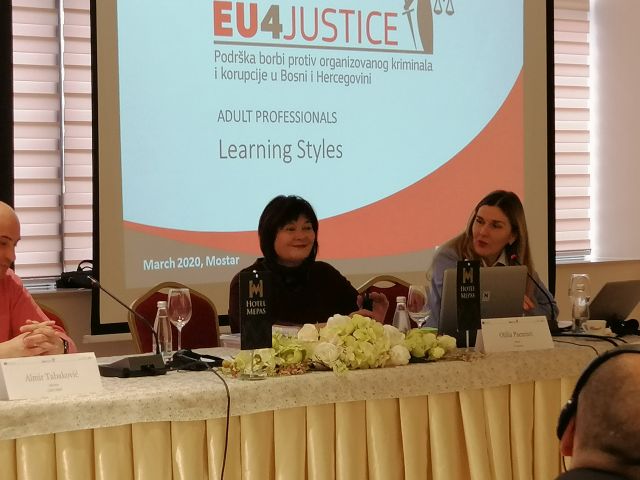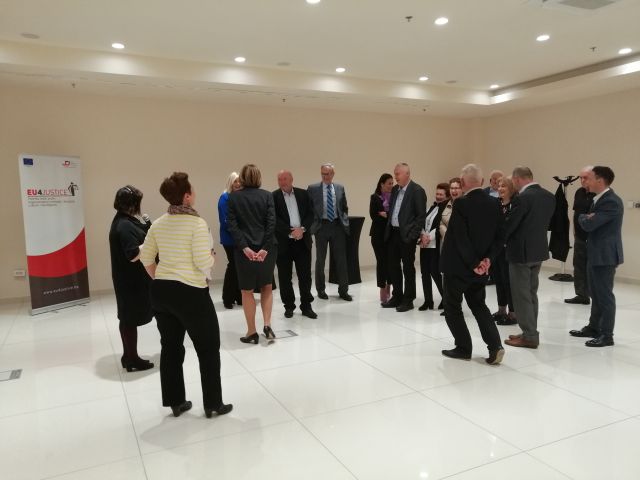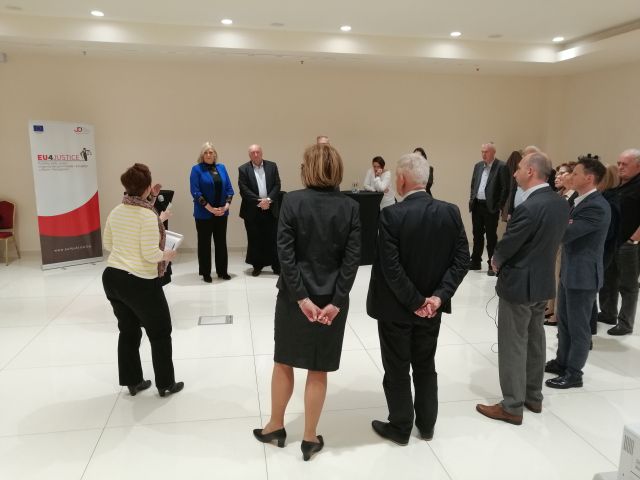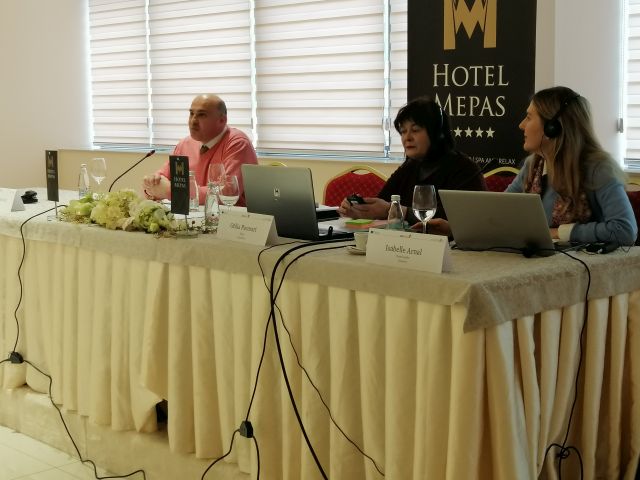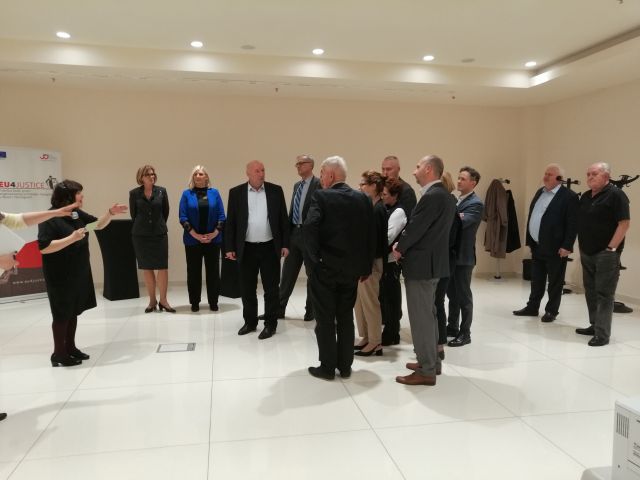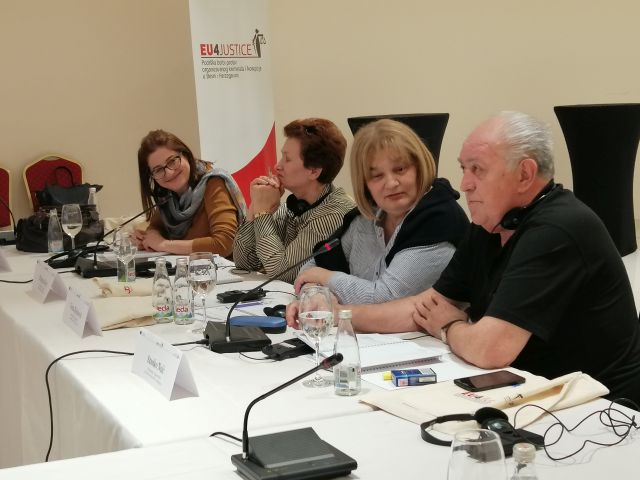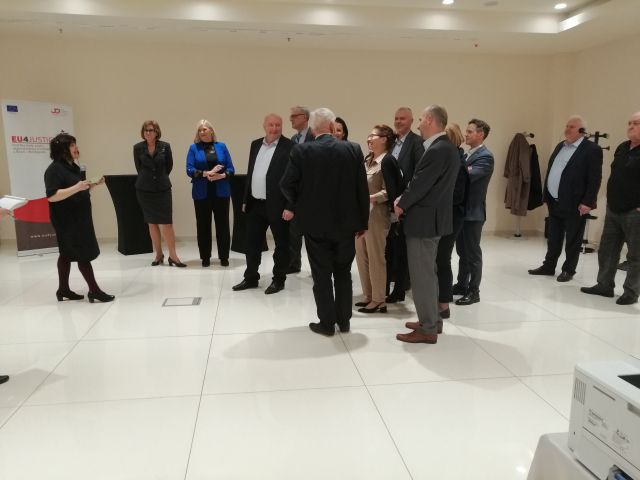From 11 to 13 March 2020, a roundtable “Mentoring Skills and Optimization of Individual Capacity for Mentorship” organized by the “EU4Justice” Project was held in Mostar. The aim of the workshop was to reinforce the initial training for newly appointed judges and prosecutors and the tools used by mentors to carry out their missions.
Thirteen judges and prosecutors already designated as mentors by judicial institutions across the country for newly appointed judicial office holders, as well as the representatives of the Centers for Judicial and Prosecutorial Training from both the Federation of BiH and Republika Srpska, participated in the workshop. The workshop was led by a prominent and experienced EU expert in the field of adult education and training Ms Otilia Pacurari, who is a judicial educator and specialist.
The three-day event brought very dynamic, interactive and fruitful discussions on the topics of adult learning principles (andragogy) and mentorship tendencies in the 21st century regarding organising principles of mentoring, mentoring program and evaluation methodologies.
An overview of international practices and national particularities with a focus on European countries such as Poland, Romania and France were offered as well. State of the art in Bosnia and Herzegovina was elaborated through a very useful analysis of mentorship done by the participants themselves through group work and interaction.
Development of the profile of a mentor with the skills necessary for successful completion of mentoring assignments was particularly interesting, as well as the elaboration of the specific mentor-mentee relationship which is crucial to the success of mentorship as such.
Challenges and dilemmas the judges and prosecutors are facing when dealing with mentorship were carefully addressed, particularly regarding the requirements to be a mentor. The participants discussed the amount of working experience as a judge or a prosecutor, moral qualities, tolerance, leadership, planning and organization skills, as well as incentives for assuming the responsibility of a mentor, such as the reduction of the quota and possible financial incentives for the mentors. The effect of mentoring duties on the quota for performance evaluation of judges and prosecutors and the slow legislative changes were stated as one of the weaknesses of the mentoring system.
It was concluded that a mentor should have two sets of skills: hard i.e. professional skills, which is the skill to put into practice the knowledge, and the soft skills to build the relationship with the newly appointed prosecutor ∕ judge through adequate communication. Also, a proper professional attitude and core values such as integrity, impartiality and similar are necessary, need to be demonstrated through behavior and not only talked about.
The participants were very much interested in the topic, especially in participating in the practical part of the workshop and learning by example. The general impression was that the subject is of great relevance to reinforcing the professional capacity of the judiciary in BiH.

